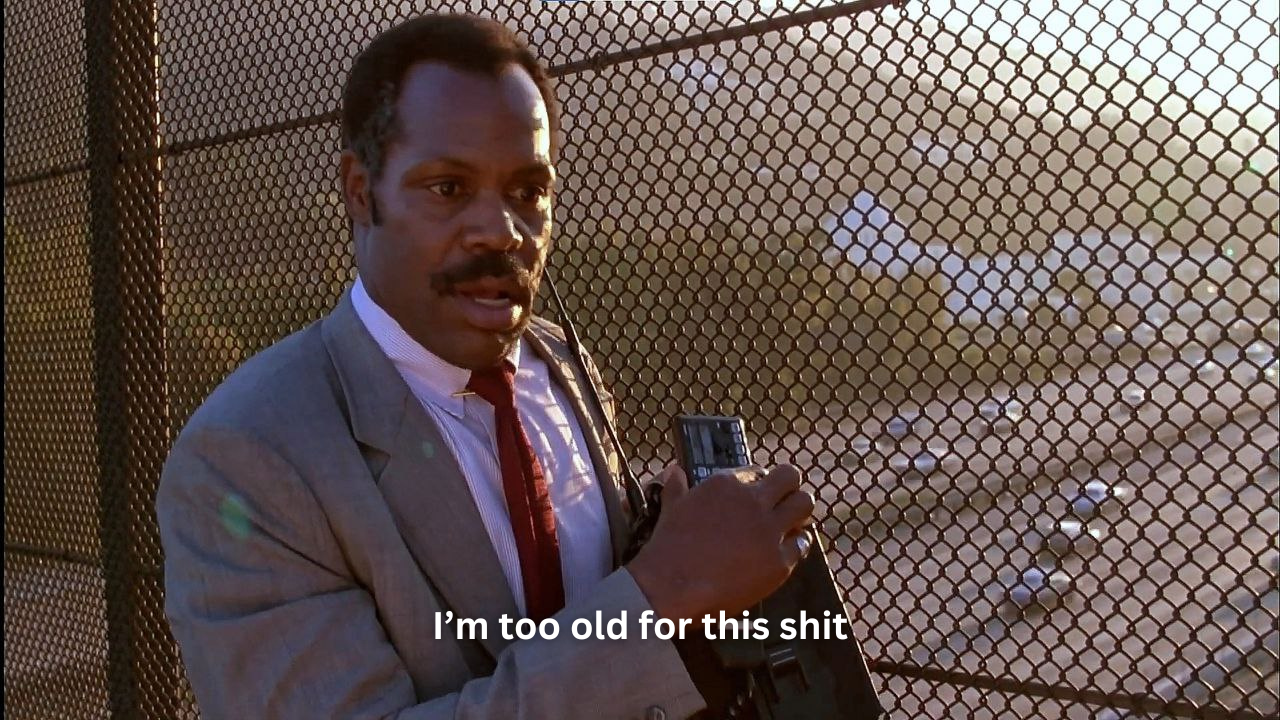small changes: taking back control of research through open software

This is the text of a paper I delivered at Edinburgh Open Research Conference 2025 on 2025-06-04 led by the conference question "What's stopping you?". It has been edited from the original to incorporate some of the accompanying presentation slides into the text and to insert in-text references.
Proprietary software is widely used in the academic research process even in areas of open research. Despite the wide availability of a range of free and open source software capable of fulfilling every task in the research process, academic research remains embedded within corporate proprietary software ecosystems imposed by our neoliberal universities. Researchers write papers in Microsoft Word, store research data in Microsoft Excel spreadsheets, share meeting minutes in Microsoft SharePoint, go to conferences on Zoom and have meetings on Microsoft Teams, deposit their work in Pure, typeset publications in Adobe InDesign, and search library catalogues in Ex Libris Primo.

Researchers continue to use these proprietary software applications despite the widely publicised failings of them. There are memes about how Microsoft Word cannot deal with it when you move an image in a document a few pixels over and how Microsoft Excel simply fails at storing and formatting dates. Proprietary software like Zoom and the Microsoft 365 suite are increasingly stuffed with LLM generative AI features that no-one seems to want and that don't help the end-user. The British Library outsourced a good portion of its IT estate to commercial proprietary software providers in a way that left their in-house IT staff overstretched and made them critically vulnerable to the cyberattack that devastated their systems in October 2023 (British Library, 2024). More crucially, we shouldn't be using software from companies that are complicit in genocide: in April 2025, the Palestinian BDS National Committee made Microsoft a priority target for boycott and divestment because Microsoft provide technology to the Israeli military and are therefore complicit in Israel's apartheid and genocide of the Palestinian people (Bowie, 2025).
Proprietary software companies are not only exploiting universities by charging so much for subpar products but they are openly doing so. A 2019 report from the UK's Department of Education (2019) sets out the Government's vision for the use of technology in education (specifically in England but with a clear agenda for the rest of the UK) and clearly communicates to vendors that UK education is a market ripe for exploitation. Donna Lanclos (2019) delivered a stirring keynote with more on this but the underlying premiss of the report is that education needs more commercial software. Section 6, 'Developing a dynamic EdTech business sector', says the quiet part out loud and signals that the UK Government views education as a sector to be exploited by commercial software providers. Across the whole report, the word "procurement" appears 13 times but the words "open source" do not appear at all even in the section about helping education providers to get the best value when procuring technology. Private software companies are ripping us off and they're so proud of themselves that they're not even bothering to hide it.
There are good reasons then to stop using proprietary software in academic research generally but these are magnified in areas of open research. If we are researching openly through collaborative working, community governance structures, and open access publishing – if our goal is more open ethical, and inclusive research cultures – then that process has to include the software that we use to do research and publish. Open research isn't about what license you publish work under: it is a practice, an approach to research and to the world, that requires embedding openness throughout the research process, working collaboratively with collectively-owned open protocols, open data, and open source software. I work in the Copim community working to build infrastructures and models for open access book publishing and we summarise this idea in the principle of No Open Access Without Open Infrastructure (Steiner et al, 2024). Open source software, software that you can host yourself and have complete control over, makes it easier to try new things and to do experimental work outside the limitations imposed by commercial companies. Both ethically and practically it doesn't make sense to do open research without using open software.

Now I know that changing software practices is not always that simple. We often don't have control over what software is on our work computers, there are IT restrictions imposed by our workplaces, and there is a general proprietary software culture within UK Higher Education. I've never paid a subscription to Microsoft 365 but that doesn't mean I don't end up using SharePoint and Teams at work. In the face of this monolithic corporate culture, changing the software that we use for academic research can seem insurmountable. I've spent my career advocating for changing software culture in Higher Education and I'm tired: in the words of Roger Murtaugh, I'm too old for this shit.

That's why today I'm here to suggest making just one or two small changes to your software practices to try something new and see how it fits. Divesting from companies like Microsoft and Google can be the long-term collective goal but as individuals our goal can be to make some small changes to what we do and to encourage our colleagues to also make small changes.
This 'small changes' approach to software in open research is inspired by a recent paper by Z Coltman (2025) discussing the Queer Liberation Library in the USA and how "small acts [...] often make a huge difference". Coltman outlines a number of small actions that the Queer Liberation Library undertook and how these small acts cumulate into disproportionately impactful outcomes for their users, particularly important in light of the neo-fascist assault on LGBTQ+ people in the USA. The idea of focusing on small changes also resonates with the 'scaling small' principle that we've abided by on the COPIM and Open Book Futures projects (Adema and Moore, 2021). We don't have to overhaul our research software culture overnight: we can act locally and make small changes that cumulatively lead to larger impacts down the road.
So that's what I want to suggest with my remaining time: a few specific suggestions for small software changes but the take-home message is that it's OK to start small by replacing one piece of proprietary software in your process with free and open source software.
First, academic writing and note-taking. Word processors like Microsoft Word and Google Docs have been disastrous for writing practices, encouraging a myopic focus on formatting and print rather than the content of text. They are similarly terrible for note-taking but I still see colleagues at conferences pouring notes into Microsoft Word documents rather than using a notes application. For long-form and short-form writing, I recommend Zettlr, a free and open source writing application built with the Zettelkasten method in mind. Zettlr offers everything you need from a writing application without the cruft of Microsoft Word or Google Docs: you can write text with a minimally intrusive user interface and with the minimal formatting of Markdown. This is great for long-form as you can concentrate on writing without worrying about fonts or how the application treats paragraph breaks or text spacing or the odd invisible punctuation marks that Word adds. But it's also great for short-form notes as Zettlr lets you build internal links between texts to build a Zettelkasten, referencing back and forth between notes in an associative web. There are other good open source note-taking applications: I personally use Joplin because it syncs all my notes on my cloud server. But Zettlr provides a good balance between a note-taking app and a word processor.
Zettlr is also able to handle citations and reference management with BibTex or CSL but for something more robust you can use Zotero. Zotero is a free and open source reference management application that works better than the proprietary EndNote or Mendeley. Zotero saves all your references for a book, journal article, or conference paper to a database and allows you to add references either manually or through a browser plugin. You can then export those references to a properly formatted bibliography in whatever citation style you need at the end of the writing process. You can also share collections of references with co-authors or research groups. In that way, Zotero can be used to quickly build and share reading lists. I do a podcast where my co-host and I research and discuss various film franchises and I use a Zotero library to share the references for each episode.
Video conferencing has become an important part of the research process from meetings with other researchers to conferences, seminars, and events. kMeet is a great open alternative to Microsoft Teams or Zoom. While there's plenty of good open source video conferencing applications like Jitsi Meet or Nextcloud Talk or BigBlueButton or eduMEET, kMeet strikes a balance between robust features and ease of use. kMeet is a fork of Jitsi developed by the Swiss cloud provider infomaniak and it is focused on security, encryption, and ethical hosting. I've been using it for a while now for work meetings, for a seminar series I helped to run, and for a regular D&D group and I've found it very reliable with some useful moderation options and the ability to record meetings straight to cloud storage. kMeet has a desktop version but you don't need it because there's also a version that runs right in the browser.
There are free and open source alternatives for every piece of proprietary software used in academic research. If you start small by replacing Microsoft Word with Zettlr or Zoom with kMeet, then you can build on that. Maybe next time you're working in a small project team, you can advocate for using Nextcloud rather than Microsoft SharePoint and Nextcloud Office rather than Google Docs. Maybe you set up a small press for open access publishing and push for using Scribus rather than Adobe InDesign.
The more we get ourselves and our colleagues using free and open source software, the more we prove how practical, cost-effective, and ethical it is compared to proprietary software and with a cumulation of small changes we can build towards ethical divestment from exploitative corporate software providers like Microsoft, Google, Elsevier, or Ex Libris Group. We need to embed open source software in research practice, especially open research practice. We need to talk about open source in the same breath as open access. That's what will embed openness as a practice in our research culture and allow us to take back control of research from the corporations telling us how our research should be done.
references
Adema, Janneke, and Samuel A. Moore. 2021. ‘Scaling Small; Or How to Envision New Relationalities for Knowledge Production’. Westminster Papers in Communication and Culture 16 (1). https://doi.org/10.16997/wpcc.918.
Bowie, Simon. 2025. ‘BDS and Proprietary Software’. open sauce. 9 April 2025. https://opensauce.simonxix.com/bds-and-proprietary-software/.
British Library. 2024. ‘Learning Lessons from the Cyber Attack: British Library Cyber Incident Review’. London, UK: The British Library. https://www.bl.uk/home/british-library-cyber-incident-review-8-march-2024.pdf.
Coltman, Z. 2025. ‘Small Acts to Make Safe Space: A Case Study of the Queer Liberation Library as a “Queer Space”’. Conceptions of Library and Information Science (CoLIS) conference, 2-5 June 2025 held in Glasgow, UK.
Department for Education. 2019. ‘Realising the Potential of Technology in Education: A Strategy for Education Providers and the Technology Industry’. https://www.gov.uk/government/publications/realising-the-potential-of-technology-in-education.
Donner, Richard, dir. 1987. Lethal Weapon. Warner Bros.
Lanclos, Donna. 2019. ‘Listening to Refusal: Opening Keynote for #APTconf 2019’. Donna Lanclos (blog). 9 July 2019. https://www.donnalanclos.com/listening-to-refusal-opening-keynote-for-aptconf-2019/.
Librarians & Archivists with Palestine. 2024. Exposing Ex Libris. Librarians & Archivists with Palestine. https://librarianswithpalestine.org/wp-content/uploads/2024/06/ExLibris1Color.pdf.
Steiner, Toby, Vincent W. J. van Gerven Oei, Hannah Hillen, and Brendan O’Connell. 2024. ‘A Growing Network of Open Infrastructures and Federated Services with Thoth’. Copim, May 2024. https://doi.org/10.21428/785a6451.92d1c71e.